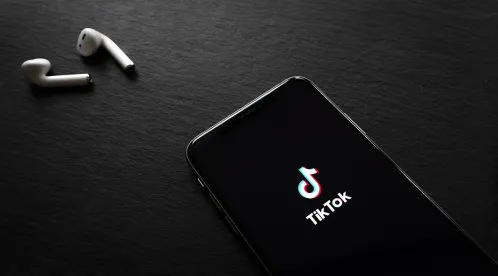Social media has quickly become engrained in our society, both in the business world and in our personal lives, and the global pandemic has only amplified this impact. Businesses that have traditionally operated out of a physical store have sought to develop an online presence to reach consumers, and individuals have turned to social media to remain connected with friends and family. Whether through posts on an individual’s or company’s timeline or short-term posts, often called “stories,” people regularly share others’ content through social media platforms by sharing posts within a platform or by uploading copies of whatever they hope to share. Sharing content is as simple as a click of a button, but the implications of that click are not always so simple. Posting something that isn’t yours, like a picture of the page of a book, a piece of artwork, or a clip from one of your favorite videos could infringe on someone else’s copyright. This article focuses on a few relevant issues surrounding social media posts that used copyrighted material and outlines some best practices businesses and individuals can take to best avoid litigation.
What is copyright?
As a general matter, copyright is a form of intellectual property protection1 that gives property rights to creators of artistic works, such as books, movies, photographs, or art. When someone creates something, they have rights over the work itself, as well as rights to reproduce and distribute the work. With the rise of social media, copyrights have come to the forefront as artists use social media to share their work, and viewers are easily able to save copies, reshare, or post themselves.
When can issues arise in sharing content?
Problems may come up in a vast variety of situations, but there are a few specific instances that are particularly relevant to employers, businesses, and individuals exploring the tools offered by different social media platforms. The following are two instances where liability may come into play without you even knowing it:
-
Employees sharing on their personal accounts could create liability for their employers. As a general matter, employers can be held liable for the actions of employees when the employee is acting within their scope of employment. Therefore, an employee sharing or posting copyrighted content could impose infringement liability on an employer depending on the context of the post and if it could reasonably be considered authorized by the employer.
-
A story on a social media platform that disappears after a period of time does not mean that the infringement never existed. Instagram, Snapchat, and Facebook stories have become popular, allowing users to post an image or a video that disappears after a certain amount of time. However, infringement for a limited period of time is still infringement and can raise questions of liability.
What are some best practices to avoid liability?
Some best practices both individuals and businesses can adopt when using social media to avoid creating any unnecessary infringement risks are:
-
Adopt social media policies for businesses and employees that make it clear that opinions and content shared by an employee on their personal social media platforms are not employer-sponsored. Consider including within this policy a requirement that employees indicate on their personal social media platforms that their opinions are their own and not that of their employer. This can discourage any arguments that the employer is liable for the employee’s content.
-
Review a social media site’s term of use to learn what you can share and how you can share it. Often times using a social media platform binds a user to its terms of use, which can give the platform and its users a license to use the content of creators who have posted to the site.2, 3
-
When sharing content, always link to the original and describe it in your own words to avoid directly copying the work of another. Instead, you direct a viewer to the original content.
-
For businesses with social media platforms, develop internal policies for those social media platforms, including policies for creating and approving social media posts, as well as other social media interactions. Having such policies can help prevent an errant post by an employee who may not be aware of the implications.
-
For businesses with social media platforms, offer social media training, including training on copyrights and other intellectual property.
Special thanks to Davis|Kuelthau Summer Associate Emilie K. Smith who co-authored this article. Emilie is an anticipated 2023 graduate of Marquette University Law School.
1 Intellectual property (IP) is a group of legal rights that protect the creations and inventions of individuals. The law contemplates a few prominent types of IP, including Copyright, Trade/Service Marks, Trade Secrets, and Patents.
2 See Instagram Terms of Use: https://help.instagram.com/581066165581870/?helpref=uf_share
3 See Tik Tok Terms of Use: https://www.tiktok.com/legal/terms-of-service-us?lang=en





 />i
/>i
